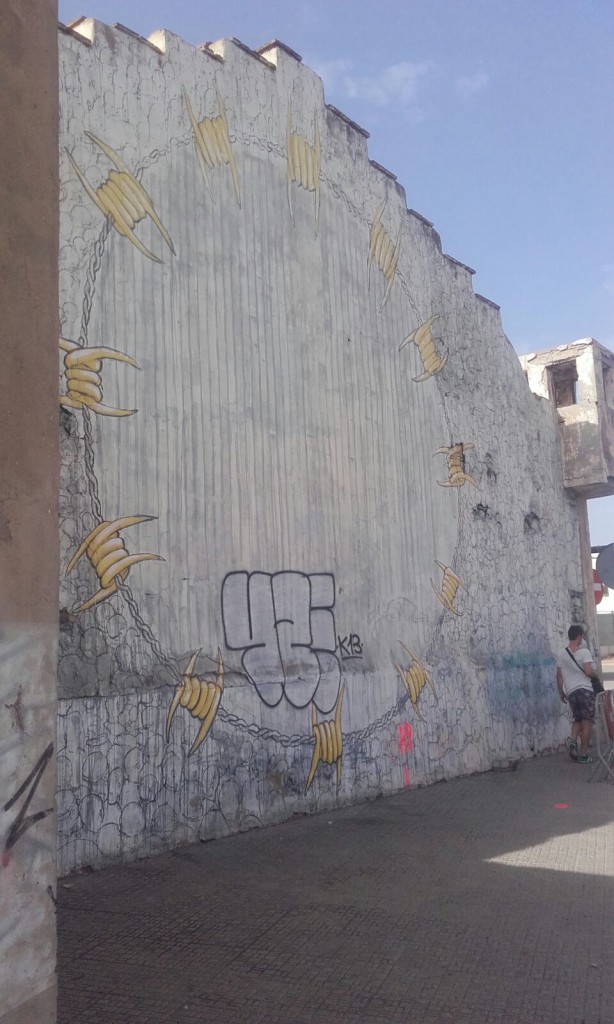Melilla: Europe in Africa
By Ella Daniels
Born in Melilla, Spanish citizen or not, if they were identifiably, ethnically Arab/Berber/Tamazigh, the Spanish infantilised them with their language. It doesn’t take a genius to notice certain parallels with another dark period of European history.

After a while I tired of the stares in the street. I noticed that I had taken to walking with my eyes glued to the pavement, nervous of the attention. I observed, quickly, that others, other women, did the same. Street harassment, is, infuriatingly, an accepted part of life. In Melilla, I, and others, were followed in the street, trailed around the city, pestered repeatedly by the same men, in the same places, time and again. My reaction to this performance enraged me. I had never been a woman who looked at the floor, who averted her eyes, who felt uncomfortable making other people feel uncomfortable. My boss’s response stunned me. When I told her I’d had “difficulties” in the street, she replied with, “when your boyfriend visits just walk around with him a lot – once people see you have a boyfriend they won’t bother you.” She assumed I was comfortable, and would be relieved, to delegate issues regarding my own safety to my boyfriend, didn’t consider the kind of message it sent. I was angry that she would suggest it, but even angrier that she was right, and that it worked.
I was told by Melillians, that the problem with Melilla was the people that came from its neighbouring country. The town would be better if they (the Spanish) were enabled to discipline those that acted in a way they disliked. For this, read, Moroccans. People spoke angrily of the boys in the street, viewed as a constant threat to their own well-being, rather than seen as what they were – lost children, with no legal way of leaving the town and returning to their parents. I could see it left a bad taste in the mouths of some, but not enough for a solution to be thrashed out. The boys did steal, annoy and intimidate, but so did many of the boys I grew up with. That’s what children, without parents, without guardians, without guidance, protection, and help, do.
I heard a lot of frustration over perceived ‘political correctness’. This ran on message with changes happening in the rest of Europe, the swing to the right, the embrace of ‘straight talking’. I could understand the argument even less (and I have no patience for it anyway), when I considered the fact that every Moroccan man was a ‘muchacho’ (boy) and every Moroccan woman a ‘muchacha’ (girl). Born in Melilla, Spanish citizen or not, if they were identifiably, ethnically Arab/Berber/Tamazigh, the Spanish infantilised them with their language. It doesn’t take a genius to notice certain parallels with another dark period of European history.
For the African refugees who succeed in entering the city, I know it’s one more stop on their long and difficult journey. I exist because of immigration (forced or otherwise). In my opinion, the feat they are undertaking is Herculean. If they cannot be celebrated they should, at the very least, be respected, for endeavouring to change and improve their lives. To do something that so few of us, the children of immigrants, would be able to do ourselves. We are strong. But they are fierce beyond measure.
Black Lives Matter. The treatment of African refugees, attempting to better their lives in Europe, by European policy makers, police and soldiers, flies in the face of this argument. If there was ever a ground zero, a place or a time that highlights the lack of worth and value that Europe feels for Africans, it is in Melilla.
Ella Daniels
Twitter: @ella_writes
Instagram: www.instagram.com/elladaniels1994


